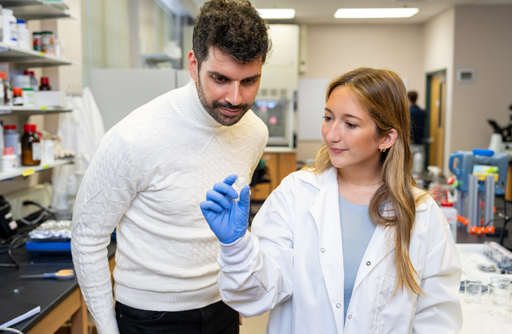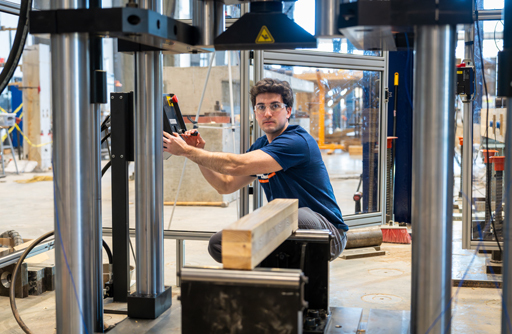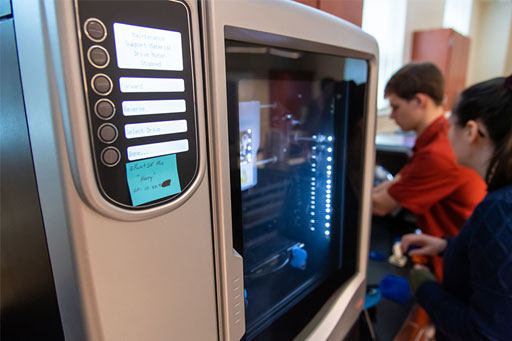Programs of Study

Aerospace
Aerospace engineers apply their knowledge of aerodynamics, astrodynamics, propulsion, structures, controls and performance in the design, development, testing and analysis of aerospace vehicles and systems used for national defense, communications, earth observation, space exploration and the transport of people and goods.

Biosystems
Biosystems engineers ensure that we have the necessities of life: a safe and plentiful supply of food and fiber, clean water to drink, renewable fuels, alternative energy sources and a healthy environment. They combine engineering concepts with biology to meet challenges and opportunities presented by living ecosystems and the natural environment.

Chemical
From the medicines we take and the fuel that powers our cars to the foods we eat and the environment in which we live, chemical engineering touches every part of our lives. Chemical engineers develop, design and control processes and products that involve molecular change.

Civil and Environmental
Civil and environmental engineers conceive, plan, design, construct, operate and maintain facilities and systems that serve the basic needs of our society. From buildings, bridges and transportation systems to power and water systems, they provide the foundation of our infrastructure while also protecting the environment.

Computer Science and Software
Computer scientists and software engineers design, analyze and develop software for the computer systems and networks that drive today’s world, from personal computing and entertainment systems to critical applications such as medical, flight and space systems.

Electrical and Computer
Electrical and computer engineers design the complex systems and electronic circuits that power today’s world and improve communications, from wireless systems and computers to energy management systems and national defense.

Industrial and Systems
Industrial and systems engineers look at the big picture of what makes organizations run most efficiently: the right combination of human and natural resources, technology and equipment, as well as information and finance to design and refine processes that improve quality, safety, profitability and productivity.

Materials
Materials engineers address the science and technology of producing materials, including metals, ceramics, plastics, semiconductors and composites that have properties for expanding capabilities and improving performance in a wide range of applications such as aerospace, transportation, electronics, energy conversion and biomedical systems.

Mechanical
Mechanical engineers are involved in the conceptualization, design, manufacture, testing, marketing and maintenance of the systems that make our lives easier, including construction, transportation, energy, water, waste and computers.

Wireless
Wireless engineers design and build wireless communication systems with embedded radio frequency circuits and network hardware and software for use in consumer products such as cell phones, computers and smart phones, as well as medical, emergency, military and security systems.
Find Your Degree
Auburn Engineering is focused on providing the best student-centered experience in America. Through our more than 25 high-quality graduate and undergraduate degrees across eight departments, we pride ourselves on providing hands-on, experiential learning opportunities for students both inside and outside the classroom.

Minors
This minor is designed to enhance all majors offered in the Colleges of Business and College of Engineering. A typical BET class may have up to 15 different majors.
The computer science minor provides a basic background in computer science theory and practice, including programming in a high-level language, algorithms, and data structures.
Pursuing a 15-hour minor in information technology will sharpen your skills in advanced web development and broaden your knowledge in computer ethics and object-oriented programming.
This minor includes 15 hours of required materials engineering-related courses and is geared toward students with more of an interest toward the engineering side of materials.
The materials science minor is designed to appeal to students who are interested more in the science aspect of materials and requires 15 credit hours.
This minor includes 16-credit hours to prepare students careers specializing in the operation, support and service of America’s nuclear power generation industry.
This 15-hour multidisciplinary minor prepares students from various engineering and science majors for careers that require a background in friction, wear and lubrication (tribology).

